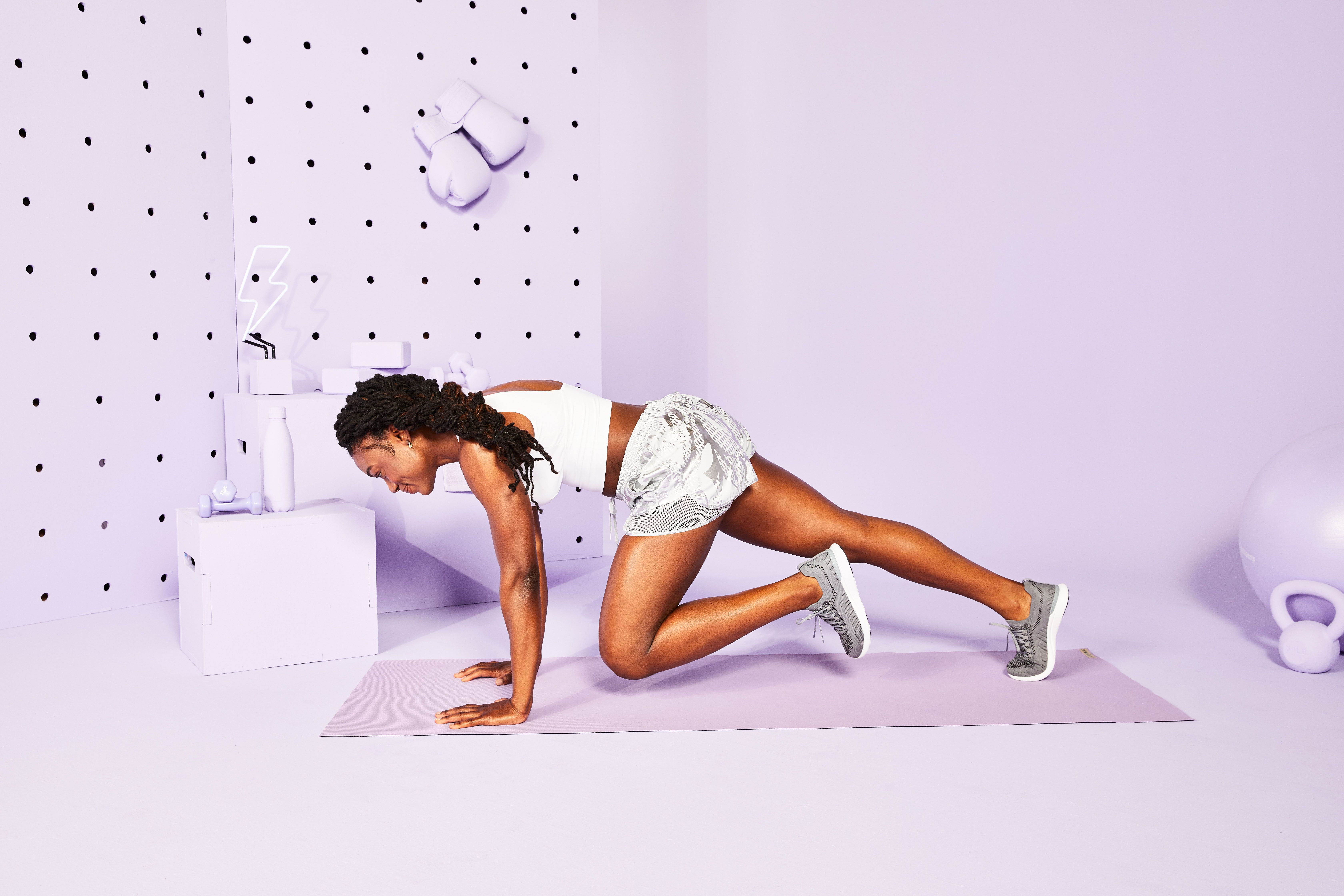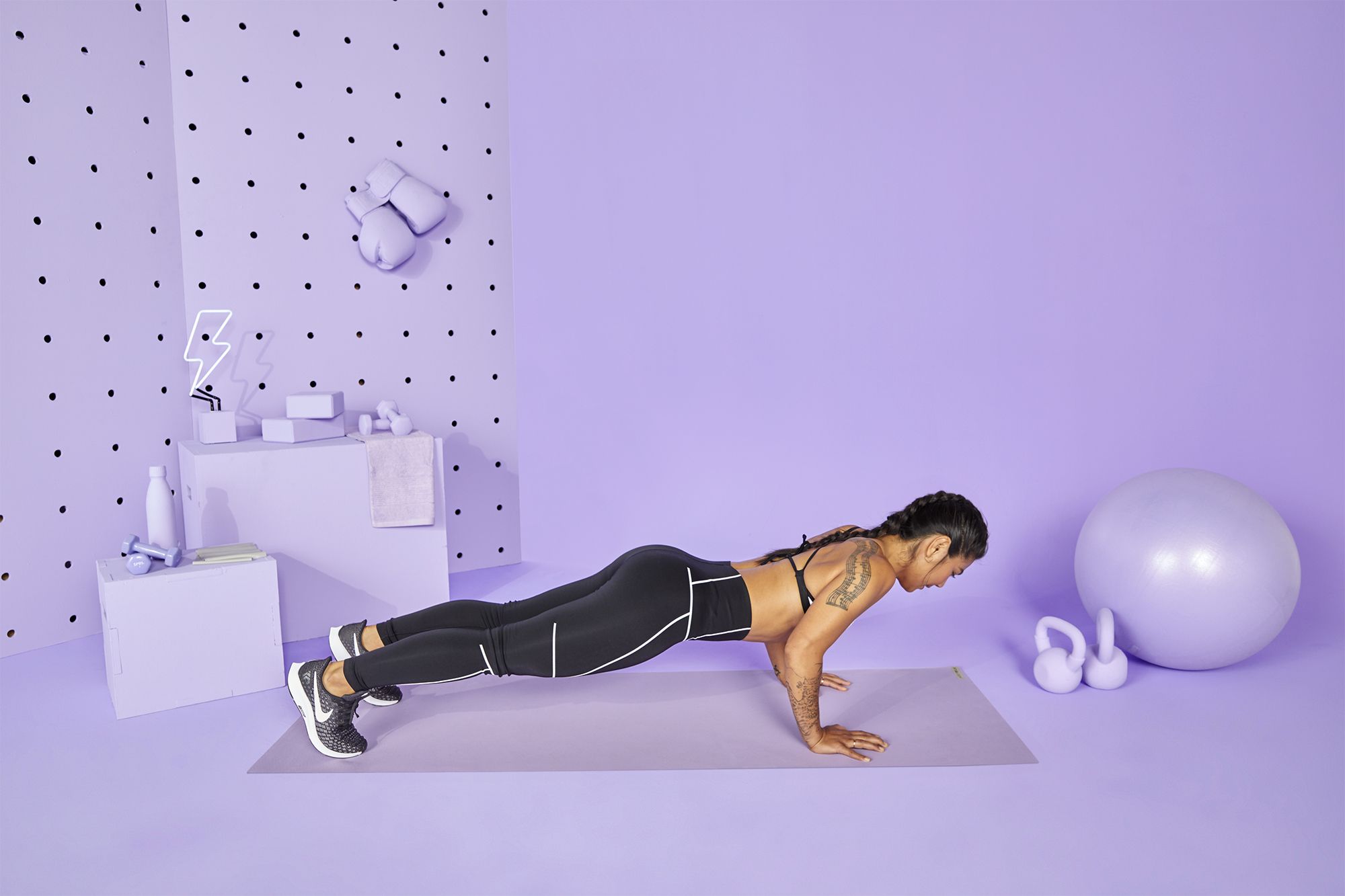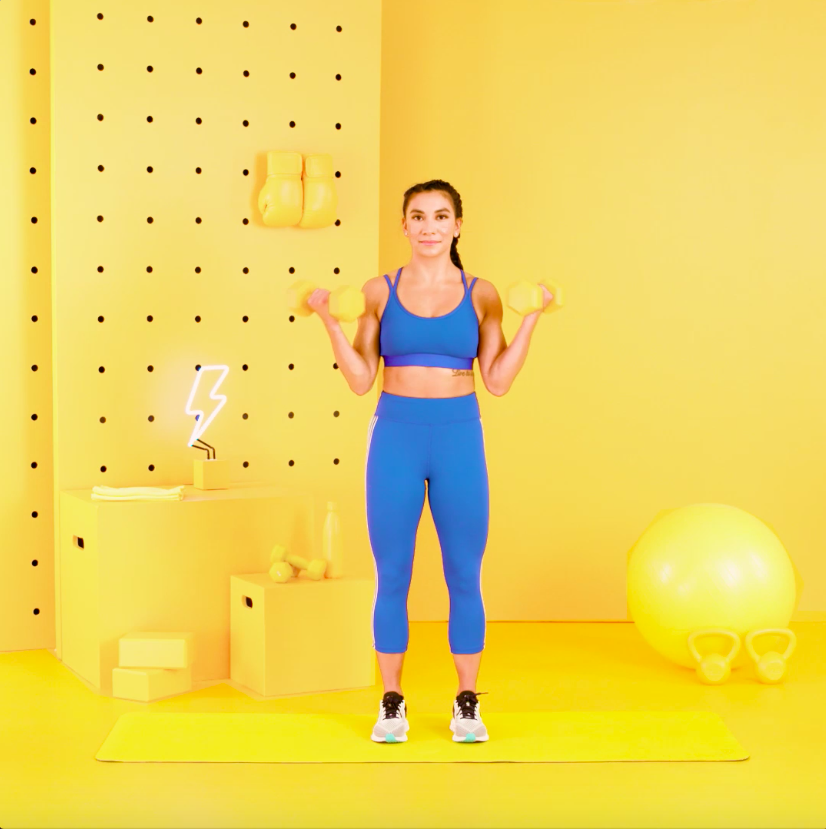Do your legs start wobbling each time you have to do bird dog? (Honestly, same.) But when done correctly, this move is totally worth it. Bird dog, also known as quadruped, targets four key areas of your body while engaging at least seven different muscles. Trust me, you definitely want to add this move to your workout routine. So as a NASM-certified personal trainer and head coach at Tone House—I’m here to help you master bird dog once and for all.
How To Do Bird Dog
How to: Start on all fours (i.e tabletop position) with wrists under shoulders and knees under hips. Be sure to engage your pelvic floor muscles, then raise your left arm in front of you and right leg behind, engaging your glutes to form a straight line from left hand to right foot. Hold for a second, then return to start. Repeat with opposite arm and leg.
Bird dog targets the core, hips, back, and shoulders
Sets/reps for results:The great thing about bird dog is that there are sooo many ways to incorporate it into your workout. But I recommend using it as a warm-up or wake up. Try completing 30 seconds of work, rest, then repeat for 10 reps. Doing this move three or four times a week will get you results and you’ll really start to reap its benefits.
Form tips: Most people will be in a cat (rounded back) or cow (sinking hips) position while on all fours, instead of neutral. Be sure your back is flat and your core, especially your pelvic floor muscles, are engaged. Think: plank form. Also, make sure that you’re not raising your arm or leg way too high. They should be in line with each other and your back.
Benefits Of Bird Dog



Primarily, this move targets the core (rectus abdominis), hips (glutes), back (erector spinae, traps), and shoulders (deltoids). Crazy, right?! And that’s not all. Bird dog also puts tons of other muscles to work that allow you to stabilize while moving in this position, including the hamstrings, obliques, piriformis (a deep butt muscle that connects your sacrum to the top of your femur), pelvic floor muscles, serratus (muscles that wrap from the sides of your rib cage back around your shoulder blades), pecs, and triceps.
The best part about bird dog is that anyone can do it. So if you want to workout with your toddler and grandma at the same time, this low-impact move is just right. At the same time, quadruped can be made more difficult by with a few simple changes. You can progress this movement by changing your surface to something less stable like a bosu ball or elevate yourself by trying it on a bench. You can even add resistance by using weights, bands, or cables.
Not to mention, bird dog is perfect for athletes and to help alleviate lower back pain by strengthening your core. It teaches your body how to engage the abdominals and simultaneously stabilize the low back while moving your extremities (arms and legs). This allows for stability, control, and proper alignment of the back of your body (a.k.a. posterior chain) while moving.
Want to try a complete core workout? Here’s a sequence to try:
Make Bird Dog Part Of Your Routine
Here are some easy ways to incorporate this movement into your current routine:
- Do them in the morning: The bird-dog is a great move to wake up to. Performing about three sets of 8–12 reps will really get the body going in the morning.
- Do them as a warm-up: Looking for a leg day starter? Try opening your workout with bird dog. I recommend three sets of 8–12 reps.
- Do them as a superset: Say for instance you start leg day with squats, after each set of squats you would immediately perform one set of 8–12 reps of bird dogs and then start your next set of squats.
Source: Read Full Article
